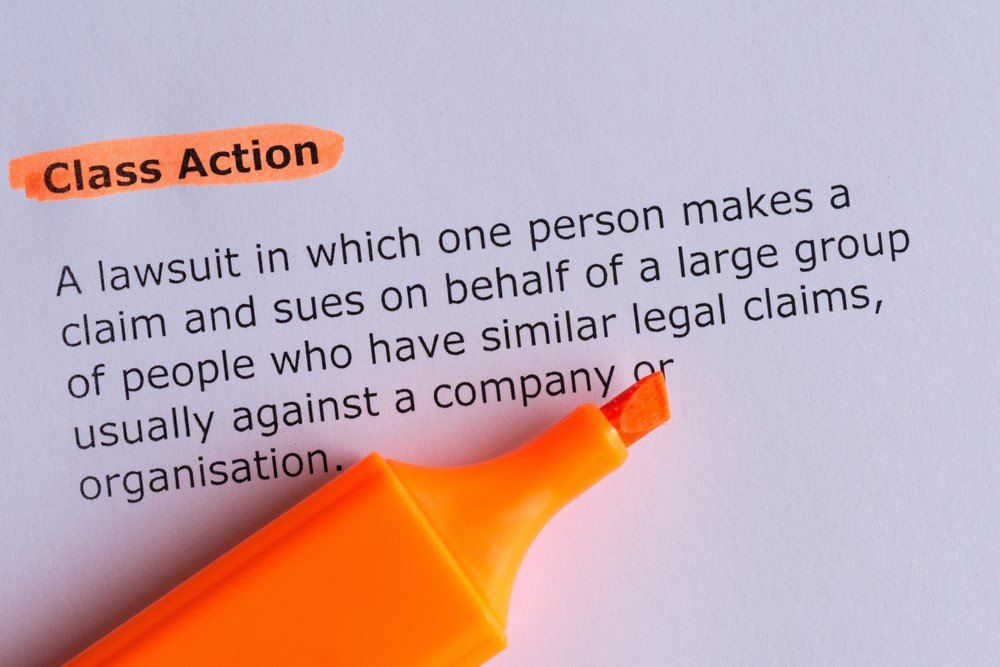Collective Justice: The Power and Process of Class Action Lawsuit Claims
Key Elements to Think About in Class Activity Suits: Insights for Legal Representatives
Course action claims can be challenging and complex for attorneys to navigate. From class accreditation demands to problems estimations and negotiation arrangements, there are numerous vital variables that require to be carefully considered. Understanding these elements and their implications is vital for attorneys aiming to properly represent their customers in class activity lawsuits. By diving right into the intricacies of course action litigation, this conversation aims to offer important understandings for lawyers seeking to browse this detailed lawful landscape.
Course Accreditation Demands
To wage a class action legal action, attorneys should navigate with a series of rigorous course certification needs. Class certification is a crucial phase in the litigation procedure that identifies whether a team of plaintiffs can be licensed as a class and wage their insurance claims jointly. These demands offer to make sure that course actions are efficient and proper mechanisms for solving disputes entailing numerous complainants.
While there is no set mathematical limit, courts generally consider a class with even more than 40 participants as completely numerous. Additionally, commonality is one more necessary variable in course certification.
Competence of representation ensures that the representatives will rather and appropriately secure the rate of interests of the course members. A course activity must additionally please the requirement of superiority, suggesting that a class activity is a remarkable technique for settling the disagreement compared to other offered methods.
Browsing with these course accreditation requirements can be challenging and intricate for attorneys. Understanding and conference these requirements are necessary to successfully go after a course activity lawsuit on behalf of a team of complainants.

Commonness of Cases
The following vital element to think about in the class certification procedure is the commonality of claims amongst the plaintiffs. Commonness describes whether the class participants share similar lawful problems and questions of reality that can be solved collectively. In various other words, it is needed to determine if there prevail concerns of law or truth that are central to the lawsuits and that predominate over any kind of specific concerns.
To establish commonality, the complainants should show that there are valid or lawful problems that prevail to the whole course. This can be accomplished by identifying a typical course of conduct or a typical lawful theory that underlies the cases (Class action lawsuit). The presence of typical questions is essential because it promotes judicial performance and economic situation by permitting a single choice to deal with the concerns for the entire class
Nonetheless, it is necessary to note that the commonness need does not require that all the specific claims equal. If there are still typical questions that bind the course with each other., differences in problems or private situations do not necessarily defeat commonness.

Damages Computations
One critical aspect to think about when determining problems in course activity legal actions is the accurate evaluation of monetary losses sustained by the class members. In order to determine the appropriate quantity of compensation, it is needed to examine the extent of injury endured by each person within the class. This can be a complex task, as it requires an extensive evaluation of numerous elements, such as the nature and period of the injury, the economic influence on the influenced individuals, and any type of various other relevant considerations.
When assessing financial losses, it is vital to think about both the straight and indirect damages endured by the class participants. Straight damages refer to the actual out-of-pocket expenditures incurred as an outcome of the offender's actions.
To determine problems properly, lawyers need to gather thorough proof, including economic documents, professional viewpoints, and statements from the course participants. They might likewise need to engage economic and economic professionals who can provide insights into the long-lasting financial ramifications of the damage experienced.
Settlement Negotiations
During settlement negotiations, lawyers need to participate in critical and cautious conversations to reach an equally agreeable resolution for all events associated with the course action legal action (Class action lawsuit). Negotiation arrangements are an important stage in the lawsuits procedure, where the events try to reach a concession without mosting likely to trial. These settlements call for lawyers to utilize their arrangement skills, legal know-how, and understanding of the case's weaknesses and staminas
One vital element to think about throughout negotiation negotiations is the prospective risks and costs connected with proceeding to test. Attorneys need to carefully evaluate the chance of success at trial and evaluate it against the potential benefits of a negotiation. They must additionally think about the prospective time and resources that would be needed to undergo a test, along with the potential unfavorable attention that might result from a public trial.
One more crucial aspect is the rate of interests and worries of the course members. Lawyers require to recognize what the course members intend to accomplish via the lawsuit and exactly how a negotiation can resolve their grievances. By considering the class participants' point of views and seeking advice from them throughout the negotiation procedure, lawyers can better support for like it their passions and guarantee that any type of negotiation gotten to is fair and acceptable.
Moreover, lawyers must be prepared to work out with the opposing celebration and their legal my company reps. This calls for a deep understanding of the strengths and weaknesses of both sides' disagreements and a determination to endanger. Experienced mediators can utilize this understanding to find commonalities and craft creative services that satisfy the needs of all celebrations involved.
Reliable Client Depiction
To successfully represent their clients in course activity legal actions, lawyers should have a detailed understanding of the instance and vigilantly advocate for their customers' passions. Efficient customer depiction requires attorneys to develop open lines of communication and keep a strong attorney-client connection throughout the whole lawsuits procedure.
Firstly, lawyers need to extensively examine the truths, lawful concerns, and potential threats related to the situation. This includes performing a thorough examination, reviewing pertinent papers, and seeking advice from with experts if essential. By obtaining a deep understanding of the situation, legal representatives can develop a calculated technique customized to their clients' needs and purposes.
Additionally, attorneys must proactively support for their customers' passions throughout all stages of the legal action. This involves preparing convincing lawful arguments, performing comprehensive research, and providing compelling proof to sustain their customers' claims. Lawyers must also remain informed regarding recent developments in class action regulation and use this knowledge to strengthen their customers' placements.
Along with legal advocacy, reliable client representation includes providing normal updates, answering concerns, and resolving any problems that clients may have. Legal representatives should be proactive in maintaining their customers educated concerning the progression of the situation and any kind of substantial developments that may influence the end result.
Inevitably, effective customer representation requires attorneys to be diligent, receptive, and committed to protecting their clients' passions and rights. By embracing a client-centered approach, legal representatives can maximize the opportunities of accomplishing a beneficial result in class action lawsuits.
Final Thought
Finally, attorneys associated with class activity suits must consider crucial factors such as class accreditation requirements, the commonality of claims, problems have a peek at this site estimations, negotiation arrangements, and reliable client representation. By meticulously addressing these aspects, attorneys can enhance their possibilities of success in class activity suits and ensure that the interests of their clients are safeguarded.
Comprehending these variables and their effects is crucial for lawyers intending to properly represent their clients in class activity lawsuits.To continue with a class action claim, lawyers have to browse through a collection of strict course qualification needs. Course qualification is a crucial phase in the lawsuits process that figures out whether a group of plaintiffs can be certified as a course and continue with their cases collectively. A class action have to also please the requirement of supremacy, indicating that a class action is a premium method for adjudicating the conflict contrasted to other offered techniques.
One important element to think about when determining damages in class action legal actions is the exact evaluation of monetary losses incurred by the class participants.